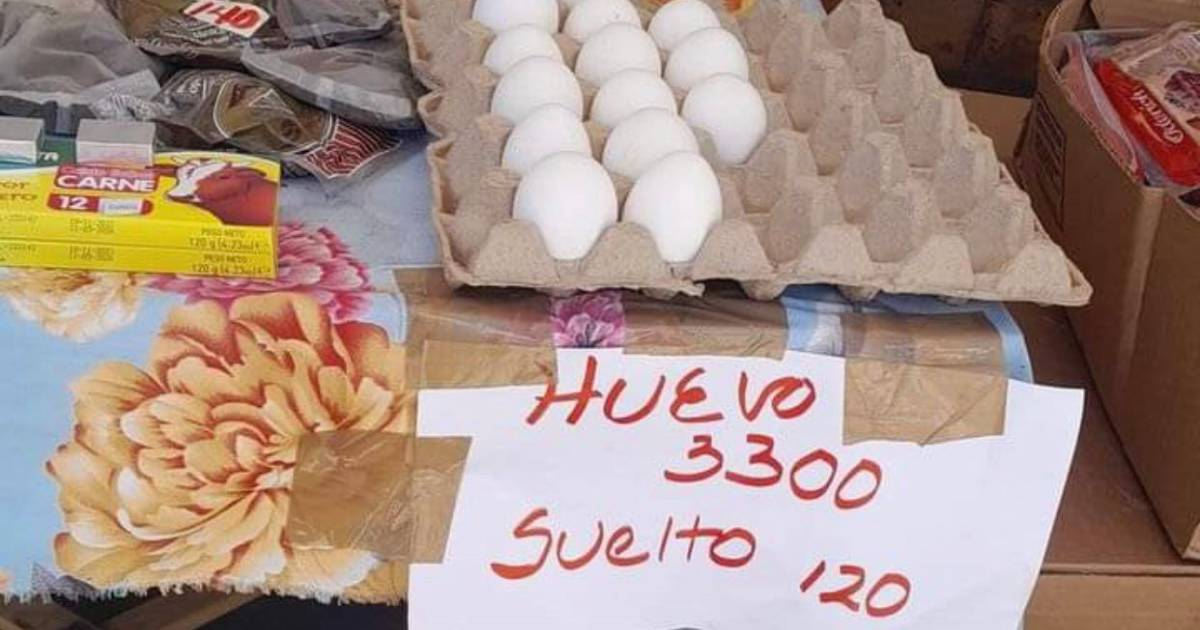The annual inflation rate in Cuba's formal market soared to 30.48% in July, with nearly all categories experiencing year-over-year increases above 10%, further confirming the sustained loss of purchasing power on the island.
The National Office of Statistics and Information (ONEI) reported in its latest release that this figure remains nearly unchanged from the previous month. The Consumer Price Index (CPI) showed a 0.83% variation compared to June, while the accumulated inflation for the year stands at 18.78%, according to the document.
Among the categories with the highest annual increases are Alcoholic Beverages and Tobacco at 50.48%, followed by Restaurants and Hotels (36.71%), Food and Non-Alcoholic Beverages (35.17%), and Transportation (32.58%).
The report indicates that nearly all categories showed annual increases above 10%, except for Recreation and Culture (9.32%), and the state monopolies of Communications (0.75%) and Health (0.72%).
The figures also include the private sector, a still-minority segment under the cautious eye of the regime, which in recent months has attempted to regulate and blame it for the island's inflation, ONEI clarified.
The state agency notes that 80.41% of the 8,176 establishments surveyed belong to the private sector, although the majority of retail trade in the country remains under the control of state-owned enterprises.
Economist Pedro Monreal stated that the official data from July "confirm the failure of the anti-inflation component of the 2024 economic package—announced in a fragmented and erratic manner—with a sustained effect of loss of purchasing power." However, inflation in the island skyrocketed in 2021 following the implementation of the so-called Task Order, a failed economic policy by the Cuban regime. In 2021, inflation in regulated trade reached nearly 70%, while in the informal market, it is estimated to have been around 500%.
Last March, the Cuban regime insisted that the uncontrolled inflation plaguing the country was not caused by its failed shock economic policies but was induced by the CIA in collaboration with independent media outlets.
In January, several Cuban economists agreed that the new measures announced by the regime to "steer the country's economy" would generate a new wave of inflation, which immediately began to be felt in some sectors, such as the increase in currency prices in the informal market.
Understanding Cuba's Inflation Crisis
To provide more clarity on the ongoing inflation crisis in Cuba, we have compiled a set of relevant questions and answers.
What is the current annual inflation rate in Cuba?
The current annual inflation rate in Cuba's formal market is 30.48% as of July.
Which categories have experienced the highest price increases?
The categories with the highest annual increases include Alcoholic Beverages and Tobacco (50.48%), Restaurants and Hotels (36.71%), Food and Non-Alcoholic Beverages (35.17%), and Transportation (32.58%).
What was the impact of the Task Order policy on inflation?
The Task Order policy led to a dramatic increase in inflation, with regulated trade inflation reaching nearly 70% and informal market inflation estimated at around 500% in 2021.
How has the Cuban regime responded to the inflation crisis?
The Cuban regime has blamed the inflation crisis on the CIA and independent media, rather than its own failed economic policies.
